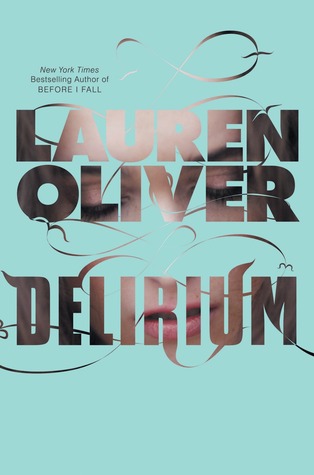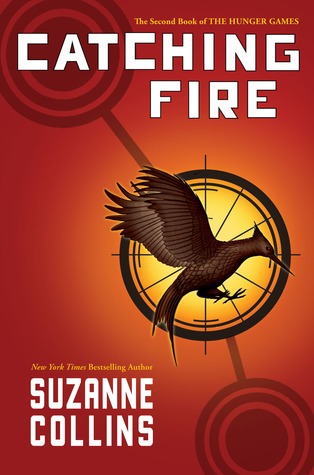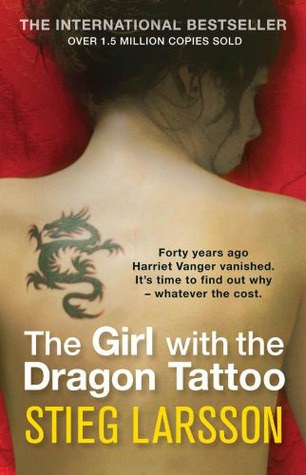It's been exactly a month since the last time I posted something. It definitely was not because I hadn't read anything for I've read three books in that time, it's that time kind of got away from me and to be totally honest, for at least one of the books, I was at a loss as to what to say. But I'm back now and so lets get to it.
Delirium by Lauren Oliver was suggested to me on Borders.com because I read
Hunger Games. It is similar to
Hunger Games in that it is satirical and it has to do with government control (common terms I keep seeing are "dystopia book" or "dystopia novel"). The difference is that in
Hunger Games the oppression is a means of punishment as well as power, while in
Delirium the citizens are made to believe that the government is not out to control them, but to protect them. Specifically to protect their health.
Summary
In this society, Love (or as they call it
amor deliria nervosa) is considered to be a disease. It is believed to be the cause of all illnesses, misery, war, and turmoil in past generations. At some point in the past, the government came up with a cure (referred to from this point on as "the cure"), an injection that is given to teenagers on their eighteenth birthday (any sooner risks complications). If things go well, you'll be cured of
amor delira nervosa, go to college, marry a mate out of a group the Government finds fitting for you, have children and live a happy healthy life. If things don't go well, you're considered an "Invaild" and a risk to society and are sent to "the wilds". All children under 18, or "uncureds", are kept from getting
deliria by segregating uncured boys from uncured girls and by enforcing a curfew.
Madelena (Lena) is 95 days away from her procedure and cannot wait. Her mother, who was still an "uncured" after receiving "the cure" several times, committed suicide years ago. Her father was considered a "sympathizer" (one who is against the cure) and ran away when she was really young. Since then she has lived with her aunt and cousins. Lena then meets Alex, a confident, mysterious boy who works for the labs, and she begins to experience the beginning signs of
amor deliria nervosa. As Lena and Alex get closer, Lena begins to question the world she's always known and wonders if its really as happy and safe as it is made to seem. When Alex unleashes a bombshell that turns Lena's world upside down, she wonders if the government she was taught to trust has actually been deceiving her and the whole society.
My Review
The main thing that I love about this book, pardon the pun, is the concept. So many books, poems, plays, songs and movies have been created over the centuries trying to explain the complicated concept of love. That despite it's downsides, it is the most wonderful feeling in the world. The ultimate aspiration of man kind. In this novel, Lauren Oliver spends hundreds of pages saying how it isn't great at all and can actually be dangerous. The society Ms. Oliver creates is unfathomable to the majority of readers. How can one go through life without feeling any sort of love? Not just romantic love, but platonic love, unconditional love, the love of a parent to a child, of an owner to their pet (there is a scene with a dog that almost made me cry). Ms. Oliver shows us that it is a very dry, boring, and monotone existence. Where parents can't console their children. Where a person can only manage a small weak smile at something happy or funny. Even a long embrace or a kiss longer than a peck is considered dangerous if you're uncured. I think it is this that makes every encounter, every kiss Lena and Alex share more exciting, because it's more than just taboo, it's forbidden.
One thing the struck me was this society's belief that love is the cause of all illness, misery and war in the world. First of all, with the exception of emotional disorders (i.e., depression, bipolar disorder), the majority of illnesses cannot in any way be linked to love without many degrees of separation. Plus, even with emotional disorders and misery, many times they occur from losing love, not having it. So that believe is easily defeated. Second, the majority of wars stem from the exact opposite of love, which is hate. The argument can still be made that love is still the culprit for without love there is no hate. Thus, if you erase love and there will be no more hate. But as we can see by looking at this society, this does not a utopia make. It may appear to be on the surface, but in the absence of love, life is absent. What is the point of being alive if you can't actual live. I'm as serious as they come and even I know that a part of living is occasionally letting your hair down and having fun and enjoying what life offers.
For those "action" people out there, I will admit that this book is a bit slow in the beginning. But Ms. Oliver's writing is so enticing, even poetic at times, that you cannot help but stick it out. The characters are so developed that they are almost three dimensional. The reader can feel Lena's confusion and disillusionment as she experiences it. How can she go against everything she's ever known? When the rose colored glasses are removed, however, they're fully removed and you witness the harsh realities right along with Lena. There are a few twists throughout the story, particularly at the very end, which I must say I wasn't completely thrilled with. However, this is the first book of a trilogy, so there is room for a lot of things to happen.



 which takes Kafka's classic Metomorphosis
which takes Kafka's classic Metomorphosis  and has the main character turn into a man size kitten rather than a cockroach. The first one that caught my eye was at the S&S booth called Jane Slayre written by Sherri Browning Erwin
and has the main character turn into a man size kitten rather than a cockroach. The first one that caught my eye was at the S&S booth called Jane Slayre written by Sherri Browning Erwin  . This book particularly took my interest because I remember having to read Jane Eyre
. This book particularly took my interest because I remember having to read Jane Eyre  in high school and completely loathing it (and I was not exactly one of those students who hated every book I was assigned just because it was an assignment). I actually recall a college English professor raving about it in class, getting completely nauseated and openly expressing my total dislike of the book. In Jane Slayre, judging by the blurb and what I've read on Amazon.com, turns the classic Reed family into vampires and Jane's classmates into Zombies all the while keeping the heroin Jane pretty much the same. From what I've read about other books in this seemingly growing genre such as Wuthering Bites
in high school and completely loathing it (and I was not exactly one of those students who hated every book I was assigned just because it was an assignment). I actually recall a college English professor raving about it in class, getting completely nauseated and openly expressing my total dislike of the book. In Jane Slayre, judging by the blurb and what I've read on Amazon.com, turns the classic Reed family into vampires and Jane's classmates into Zombies all the while keeping the heroin Jane pretty much the same. From what I've read about other books in this seemingly growing genre such as Wuthering Bites  and Little Vampire Women
and Little Vampire Women  such minor changes remain a constant. In reading a excerpt from Jane Slayre, the text itself seems to remain ultimately the same, except that instead of using words like "dinner" and "dining" Erwin uses words like "prey" and "hunting". Many fans of these classics may find this be blasphemous and a ploy to make money off of the vampire/werewolf/zombie fad. Others may be intreguiged to read a lighter comedic spin on the classics. One thing is for certain, horror and scifi fans who deem such classics as out of date and boring will most likely find these books to be a fun mix. I've personally ordered Jane Slayre, Little Vampire Women and Wuthering Bites. I will definitely be blogging my findings once I read them.
such minor changes remain a constant. In reading a excerpt from Jane Slayre, the text itself seems to remain ultimately the same, except that instead of using words like "dinner" and "dining" Erwin uses words like "prey" and "hunting". Many fans of these classics may find this be blasphemous and a ploy to make money off of the vampire/werewolf/zombie fad. Others may be intreguiged to read a lighter comedic spin on the classics. One thing is for certain, horror and scifi fans who deem such classics as out of date and boring will most likely find these books to be a fun mix. I've personally ordered Jane Slayre, Little Vampire Women and Wuthering Bites. I will definitely be blogging my findings once I read them.







 , The Hundred Secret Senses
, The Hundred Secret Senses  , and The Bonesetters Daughter
, and The Bonesetters Daughter  . So when I went into Barnes and Nobles one day while waiting for a friend and I saw Shanghai Girls, I was instantly intrigued and I read the first chapter while I waited.
. So when I went into Barnes and Nobles one day while waiting for a friend and I saw Shanghai Girls, I was instantly intrigued and I read the first chapter while I waited.

 , 1984
, 1984  and Animal Farm by George Orwell
and Animal Farm by George Orwell  , and Brave New World by
, and Brave New World by  . What actually caused me to purchase the book was after reading an excerpt of the first chapter on Google and being reminded of 1984. And as with 1984, many aspects of The Hunger Games can be seen in society today, even though it is set during some unknown time in the future.
. What actually caused me to purchase the book was after reading an excerpt of the first chapter on Google and being reminded of 1984. And as with 1984, many aspects of The Hunger Games can be seen in society today, even though it is set during some unknown time in the future.


